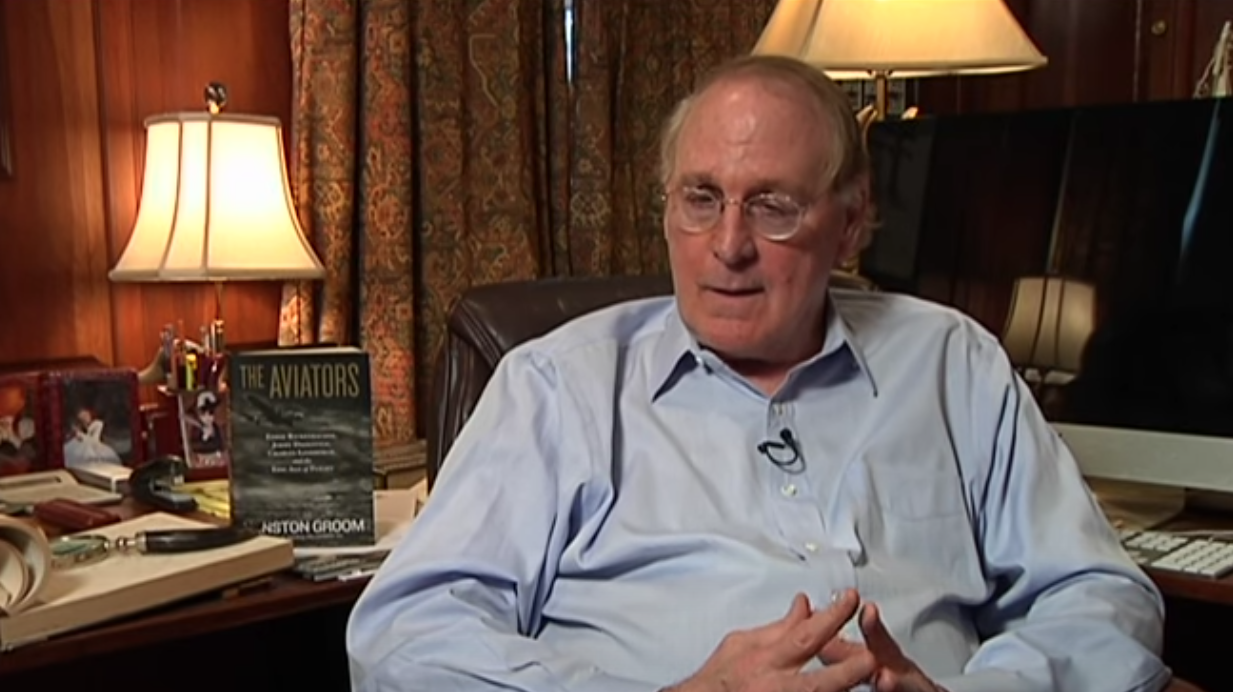Winston Groom, Vietnam veteran and famed author of the novel Forrest Gump, which was later the basis for the beloved film starring Tom Hanks, died at his home in Fairhope, Alabama on September 17. He was 77.
His death, reports the Washington Post, was unexpected, with his wife Susan Groom adding that they “believe it was a heart issue.”
Prior to finding fame with Forrest Gump, Groom had already published three novels: Better Times Than These, As Summers Die, and Only. In 1983 Groom, alongside journalist Duncan Spencer, published Conversations with the Enemy: The Story of PFC Robert Garwood, the harrowing account of the longest-held U.S. prisoner of war in Vietnam. The book was a nonfiction finalist for a Pulitzer Prize.
It was in 1986, however, that Groom’s most beloved character took form. While out with his father for lunch, Groom told C-SPAN in 2014, his dad began to describe how there was once a young, intellectually disabled boy with a savant-like ability to play the piano in his neighborhood. Frequently picked on, the young boy began to make friends due to his musical abilities.
The story piqued Groom’s interest and once the budding novelist began to write, the words seemingly poured out of him. It took Groom a mere six weeks to complete Forrest Gump.
“It was like it was writing itself,” Groom said in the interview with C-SPAN. “I didn’t have any notes, I didn’t have any research…what’s he going to do today?”
The novel sold respectably, garnering decent reviews, but it wasn’t until the 1994 movie, directed by Robert Zemeckis, that Groom’s character Forrest became a beloved American figure—with his “Gumpisms” becoming entrenched in the American lexicon.
Groom told C-SPAN “you write what you know…I’d never done anything worth a hoot in my life except that,” Groom said in describing his service in Vietnam and what propelled him to write his novel. “It’s something that was very impressed on me. To write about men in war.”
Born on March 23, 1943, in Washington, D.C., Winston Groom and his family moved to Mobile, Alabama, shortly after his birth. Groom’s father was a lawyer and his mother an English teacher. After graduating from the University of Alabama, Groom entered the Army in 1965 and served as an infantry officer in Vietnam.
After his discharge, Groom briefly worked in a box factory back in Alabama before landing a role as a reporter for the now-defunct Washington Star. After working for nearly a decade at the Star, Groom left the paper in 1976 to follow his dream of being a novelist.
“I thought, ‘Well, if I don’t get out of here to do this now, I’ll never do it,’” he told C-SPAN. “So I announced that I was going to resign to write a book. And I thought that was rather brave, because that sort of burned my bridges. I’d be too embarrassed to go back to the newspaper.”
The film release of “Forrest Gump” catapulted Groom into the public eye. The author noted that not a week would go by without strangers approaching him and quoting lines from the film—especially the line “Life is like a box of chocolates.”
While one of the more memorable lines said on screen, the words were not written by Groom but by screenwriter Eric Roth.
Groom’s version was somewhat more poignant and reflective—“Let me say this: bein a idiot is no box of chocolates. People laugh, lose patience, treat you shabby.”
“Why… didn’t they use my line?” Groom posited after the film’s release. “Well, what do I know? Everywhere I go people send me chocolates. I hate chocolates!”
Despite the chocolate “controversy”, overall Groom was pleased with the execution of the movie.
“They kept the character pretty much as I intended,” he told the New York Times in 1994. “As I see it, it’s a story about human dignity, and the fact that you don’t have to be smart or rich to maintain your dignity even when some pretty undignified things are happening all around you.”
During his lauded career Groom wrote eight novels as well as more than a dozen nonfiction books. His latest, The Patriots: Alexander Hamilton, Thomas Jefferson, John Adams, and the Making of America, will be published this November by National Geographic.





